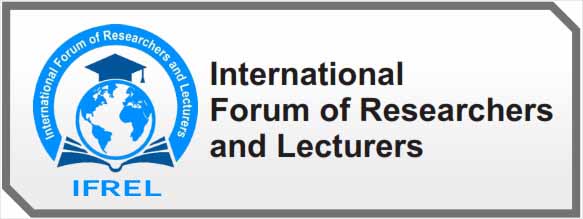Hotel Employee Performance Review: The Effect of Job Satisfaction, Competence and Motivation
DOI:
https://doi.org/10.55606/bijmt.v2i2.437Keywords:
Competence, Work Motivation, Job Satificaion, EmployeesAbstract
Companies must always foster employee motivation through the fulfillment of the basic physiological needs of employees, security, social needs, esteem and opportunities for self-actualization. This study aims to prove the effects of competence and motivation on job satisfaction and their impact on employee performance at Sahid Jaya Solo Hotel. This research is included in quantitative research using SPSS 16 and research design using associative approach. The associative approach was carried out with the aim of finding the effect of compensation and work environment on performance mediated by work motivation. . Collecting data using research instruments, data analysis is quantitative or statistical, with the aim of testing the established hypothesis. The place of this research is Sahid Jaya Hotel Solo, Jalan Gajah Mada No.82, Ketelan, Banjarsari, Surakarta City, Central Java 57132. This research was conducted for 6 months starting from May 2017 and is estimated to be completed in October 2017. The population that the author uses as the object of this research is the employees at Hotel Sahid Jaya Solo. The number of employees at Hotel Sahid Jaya Solo is 114 employees. The results show that there are positive significant effects of competence and motivation on job satisfaction and their impact on employee performance at Sahid Jaya Solo Hotel.
References
Benardin, H. John and Joyce E. A. Russell. 1998. Human Resources Management: An Expriential Approach. McGraw-Hill. Series In Manage-ment. New York.
Dipboye, Robert, L., Smith, C. S., Howell, W. C.,1994, Understanding Industrial and Organizational Behavior, USA: Winston Inc.
Handoko, T. Hani. 1999. Manajemen. Edisi 2. Yogyakarta: BPFE
Hasibuan, M. 2003. Organisasi dan Motivasi: Dasar Peningkatan Produktivitas. Jakarta:Bumi Aksara.
Iman Sugeng. 2002. Mengukur dan Mengelola Intellectual Capital. Paradigma Baru Manajemen Sumber Daya Ma-nusia. Editor A. Usmara. Penerbit Amara Books. p. 199-213.
Kreitner, Robert and Angelo Kinicki, 2003. Perilaku Organisasi. Edisi Bahasa Indonesia. Jakarta : salemba Empat.
Luthans, Fred, 2006, Perilaku Organisasi, Edisi 10, Yogyakarta: Penerbit Andi.
Mangkunegara Anwar Prabu, 2005. Manajemen Sumber Daya Manusia Perusahaan, Cetakan Keenam, PT. Remaja Rosdakarya, Bandung.
Marshall, Patricia. 2003. Mengapa Beberapa Orang Lebih Sukses Dari Yang Lainnya?. Manusia dan Kompetensi Panduan Praktis Untuk Keunggulan Bersaing. Editor Boulter,Murray Dalziel, dan Jackie Hill. Alih Bahasa. Bern. Hidayat. Penerbit PT Bhuana Ilmu Populer. hal. 36-51.
Priansa, Donni Juni. 2014. Perencanaan dan Pengembangan SDM. Bandung : Alfabeta.
Robbins, Stephen P. dan Timothy A. Judge, 2008,Perilaku Organisasi, Edisi 12 Jilid 1 dan 2,Jakarta: Salemba Empat.
Robbinss Stephen P., 2001. Organizational Behavior (Terjemahan) Jilid 1, Edisi Kedelapan, PT.Bhuana Ilmu Populer, Jakarta.
Robbinss Stephen P., 2001. Organizational Behavior (Terjemahan) Jilid 1, Edisi Kedelapan, PT. Bhuana Ilmu Populer, Jakarta.
Sarwoto Drs. 1979, Dasar-dasar Organisasi Management, Ghalia Indonesia, Jakarta.
Siagian, Sondang. 1983. Organisasi, Kepemimpinan dan Perilaku Adminsitrasi, PT.Gunung Agung, Jakarta
Siswanto. 2001. Implementasi Manajemen Sumber Daya Manusia BerbasisKompetensi : Materi Lokakarya. Departemen Teknik Industri ITB.
Spencer, Lyle M. and Signe M. Spencer. 1993. Competence Work: Model for Superior Performance. John Wiley and Sons, Inc.
Sylvana Andi, 2002. Pengaruh Gaya Kepemimpinan terhadap Kinerja dan Kepuasan Kerja Anggota Polri Polda Metro Jaya, Jurnal Universitas Terbuka, Jakarta.
Umam, Khaerul. 2010. Perilaku Organisasi. Bandung: CV Pustaka Setia.
Ulrich, Dave. 1997. Human Resource Champions. Massachusetts: Harvard Business School Press.
Wibowo. 2007. Manajemen Kinerja. Jakarta: Rajawali Pres.















